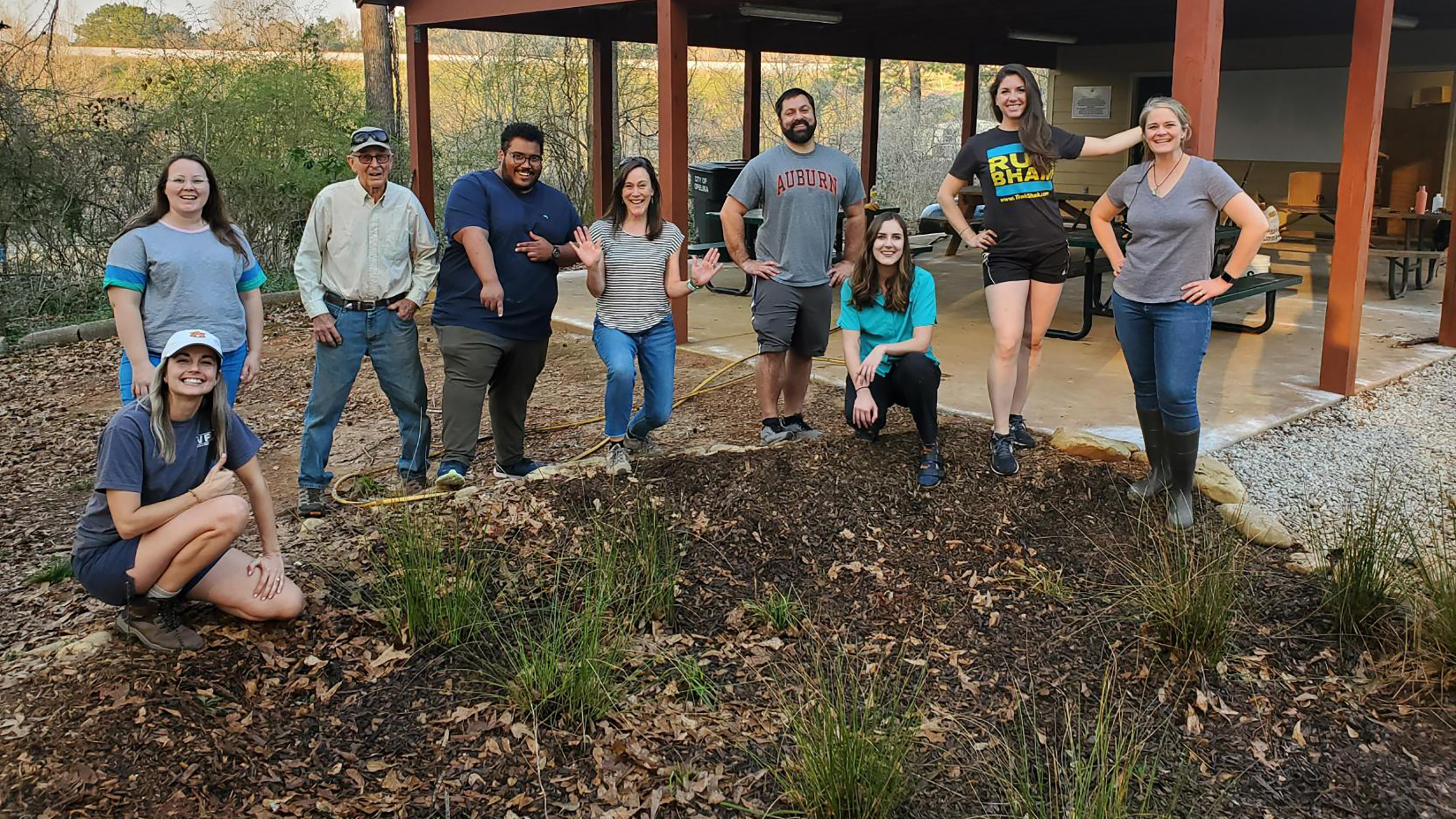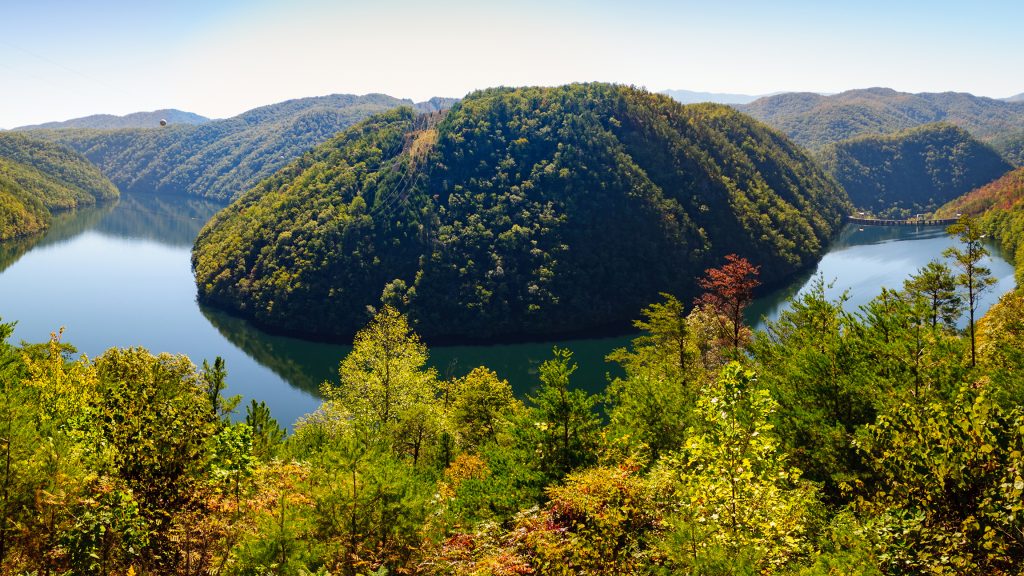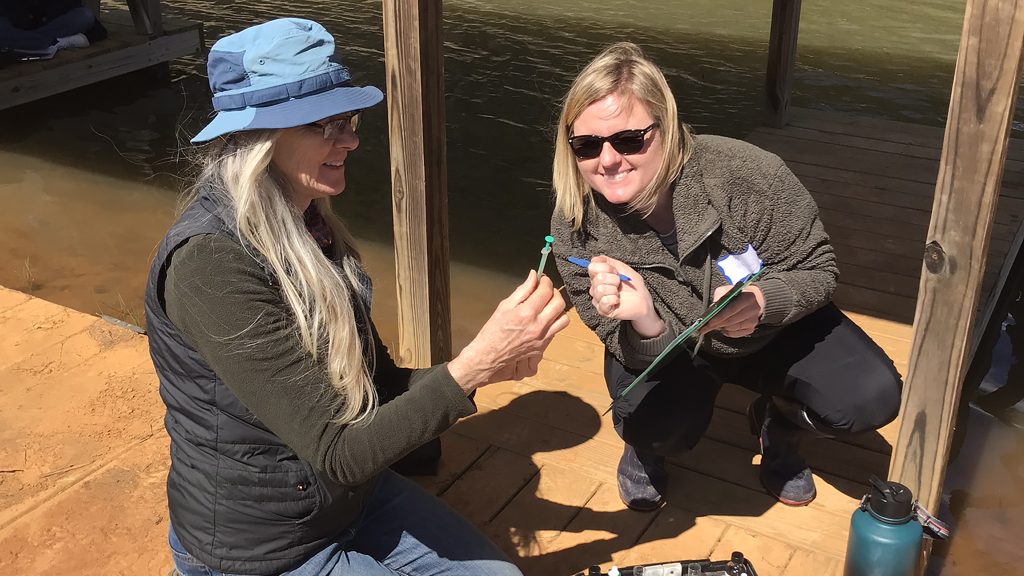
ALABAMA WATERSHED STEWARDS
Back to Water Resources Center /
Alabama Watershed Stewards (AWS) is a science-based outreach program from the Auburn University Water Resources Center that promotes healthy watersheds, increases understanding of water pollution, and provides the knowledge and tools to approach water as a community asset.
Through various workshops and educational materials, Watershed Stewards offers a platform for local decision makers, organizations, and city officials to come together in imagining the future of their city’s waterways, and to take action to protect and plan for those resources.
AWS workshops include 1-day Watershed Stewards workshops, 1-day watershed planning workshops, technology transfer workshops, and hands on projects like rain garden installations. Workshops are open to the public with registration. See below for more details.
Activities are led by the Auburn University Water Resources Center, (Alabama Cooperative Extension System Water Program in partnership with Alabama Water Watch) and various local partners. The program is funded by the Alabama Department of Environmental Management through a Clean Water Act Section 319(h) nonpoint source grant provided by the U.S. Environmental Protection Agency – Region 4.

Alabama Watershed Stewards Rain Garden Maintenance Day. Photo Credit: Sydney Zinner, AUWRC
Why Watersheds Need Local Leadership
Alabama deserves cities and towns that are resilient, livable, productive, and sustainable; that begins with clean water. Alabama’s water resources can be assets to regional and economic development if we plan to protect and preserve them.
Watershed Stewards works to collaboratively improve watershed management skills and provide a platform for community leaders to exchange of problems and solutions through local support networks. We offer both educational outreach and on the ground projects that encourage the adoption of water management strategies that benefit the community, the economy, and the environment.
WHAT IS A WATERSHED?
A watershed is a naturally defined area of land that determines how precipitation collects and drains water into a common basin (river, lake, or stream). Everyone lives in a watershed and each watershed is different. Pollution, erosion, and other activities that take place on the land can significantly impact water quality and ecological communities within the watershed. Watersheds are natural geographic boundaries in the landscape and can be a helpful and tangible way to frame and address local water quality concerns.

WHY USE WATERSHED APPROACH?
Approaching water quality concerns at a small, local scale can empower people to take action. Making the connection between land use, human activities, and ecological impact on our shared natural resources can be a difficult task due to the complexity of these systems. Watershed planning can give local stakeholders more ownership over appropriate avenues for change by outlining the current state of the watershed, projected concerns, and by prioritizing future activities.
By using a watershed approach, the Alabama Watershed Stewards Program encourages citizens to take an active role in addressing local water quality concerns. Communities can use watershed management plans to help prioritize community activities, providing a tangible bite-sized approach to tackling the biggest areas of concern within a watershed.

Water quality monitoring is a citizen science method for measuring changes in water quality parameters over time. Photo Credit: Alabama Water Watch
PROGRAM OFFERINGS
Alabama Watershed Stewards hosts several types of trainings, each intended to promote healthy watersheds, increase citizen understanding of watershed pollution, and provide people with the tools they need to prevent and resolve local watershed issues. Visit the ACES Calendar and search for “watershed” to see all upcoming offerings.
1. Alabama Watershed Stewards Trainings
These one-day in person trainings across the state focus on specific watersheds that currently have waterways in need of community care.
What you’ll learn: These workshops invite local leaders and members of the water community to share their experiences, identify local challenges and opportunities that can benefit the community, the economy, and the environment. This program offers a platform for local decision makers, organizations, and city officials to come together in imagining the future of their city’s waterways, and to take action to protect and plan for those resources.
What you’ll do: Listen to talks from other participants, engage in discussions and small projects. Participants gain practical information about local watersheds groups, partnerships possibilities, and project funding opportunities.
Draft agenda:
8:30 Sign in
9:00 Welcome + program introduction (AU Water Resources Team)
9:15 Overview of watershed systems (AU Water Resources Team)
10:10 Understanding the state of your watershed
11:45 Catered Lunch
12:30 Improving watersheds – What can we do?
2:30 Community discussion
3:00 Upcoming events and closing comments
How it works:
- Register for a workshop in your region here: http://aub.ie/alabamawatershed
- Open to the public.
- $20 registration
- Fee covers lunch and an Alabama Watershed Stewards Handbook.
- 0.65 Continuing Education Units available for those who complete the training.
2. Watershed Management Planning Workshops
Wherever you live, you live within a watershed. A watershed is a naturally defined area of land that channels rainfall and snowmelt to creeks, streams, and rivers, and eventually to outflow points such as reservoirs, bays, and oceans. The land use activities in your watershed can ultimately influence the quality of water in a region. Citizens can become involved with improving local water quality through watershed planning efforts. Watershed planning is a voluntary integrated approach to responsible resource management by considering the watershed as a whole. These one-day in person workshops introduce the process of watershed planning for communities as a voluntary way to plan for a community’s water future and gain opportunities for project funding.
What you’ll learn: About the process of 1) identifying and prioritizing water quality challenges in the watershed, 2) developing increased public involvement, 3) coordinating activities with other agencies, and 4) measuring success through increased and more efficient monitoring and other data gathering.
What you’ll do: Listen to presentations from others in the region working on watershed planning and work with local community members on identifying opportunities you’re your own watershed. In this watershed planning workshop you will learn about:
- Watershed planning – what it means and how it works
- The basics of watershed management
- Identify challenges and opportunities in your community
- Explore funding opportunities related to watershed planning
- Leverage water resources and community development
- Identify priorities and next steps
How it works: Taking a watershed approach represents awareness that restoring and maintaining our waters requires crossing traditional barriers (point vs. nonpoint sources of pollution, county boundaries) when designing solutions. These solutions increasingly rely on participation by both public and private sectors, where citizens, elected officials, and technical personnel all have opportunity to participate. This integrated approach mirrors the complicated relationships in which people live, work and recreate in the watershed, and suggests a comprehensive, watershed-based and community-based approach is needed to address these.
- Register Here: http://aub.ie/watershedmanagement
- Locations vary
- $20 registration
- Fee covers lunch and an Alabama Watershed Stewards Handbook.
- 0.65 Continuing Education Units available for those who complete the training.
3. Alabama Watershed Stewards Online Course
This free online self-paced course introduces you to the basics of water quality, watershed health, and ways to get involved. Offered year round, this self-paced course will give you a foundational knowledge about watersheds, non-point source pollution, and ways to protect water quality. The course mimics the outline of the Alabama Watershed Stewards Handbook, available online.
What you’ll learn:
Basics of Watershed Systems
Causes of Watershed Impairments
How to use Best Management Practices
How Communities Make a Difference
What you’ll do:
Complete course videos and quizzes
Make connections across various fields to see how they impact water quality
Learn about how you personally can get involved
How it works:
The course is self-paced so that you can log-in for up to 6 months
Takes roughly 1/hr day for 5 days to complete
Complete all the course requirements and receive .7 CEUs from Auburn University.
Register here: https://aub.ie/awsonline
EDUCATIONAL RESOURCES
The AWS program offers several educational resources from publications to videos.
- Alabama Watershed Stewards Handbook
- Alabama Watershed Stewards Videos
- Rainscaping Your Home Landscape Webinar
- Overview of Watershed Stewardship Articles
- A Homeowner’s Guide to Rainwater Harvesting in Alabama
- About Watershed Planning
- Agricultural Best Management Practices for Water Quality
- Everyday Water Conservation
- Guide to Harvesting and Planting Live Stakes for Stream Restoration
- How to Install a Rain Garden
- Pet Waste and Water Quality
- Planning and Conducting a Litter Pickup
- Soil Testing Protects Water Quality
- The Basics of Water Quality
- Water Quality Best Management Practices
- Water Use in Alabama
- What is a Watershed?
These and other resources are available under the Water Resources section of the Alabama Extension website.
LEARN MORE
Want to learn more? To find upcoming events, workshops, and other learning opportunities, visit the Alabama Extension calendar. Follow the ACES Water Social Media account to stay up to date, or click the photo below to be added to the AWS Newsletter mailing list.


